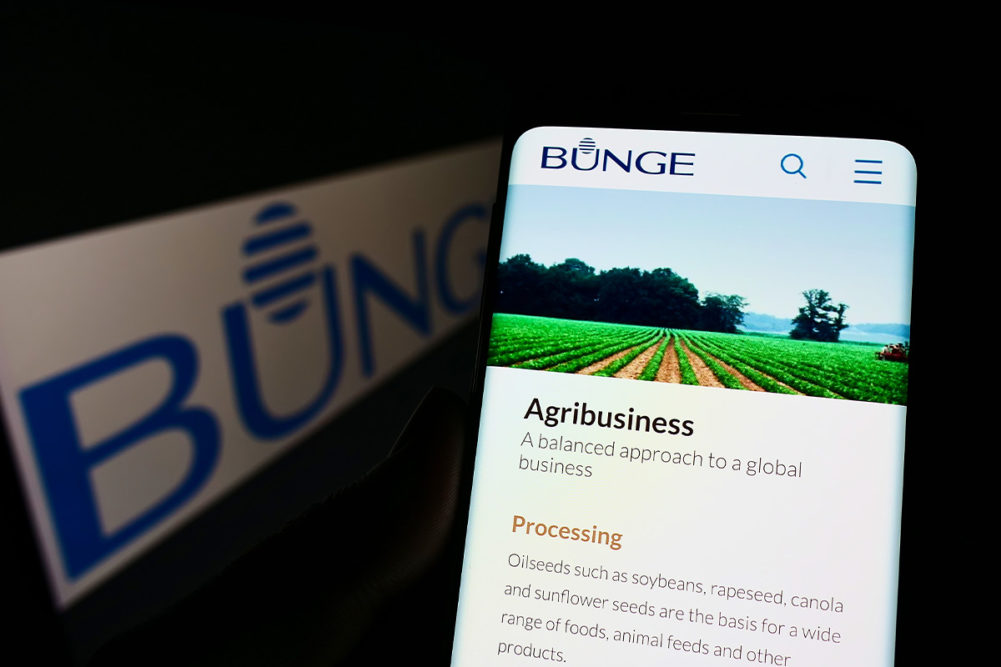ST. LOUIS — The week following a proposal by the US Environmental Protection Agency (EPA) to set new biofuel volume targets, executives of Bunge discussed the company’s view of the renewable fuels sector at the BMO Capital Markets and Growth ESG Conference. During a Dec. 6 virtual fireside chat, Gregory Heckman, chief executive officer of the soybean processing company, seemed confident about Bunge’s position, despite the lower-than-expected proposed Renewable Fuels Standard.
“I mean, if you back way out, we weren’t even talking about renewable diesel three years ago,” Mr. Heckman said. “The demand is up and to the right, and the answer is more demand.
“We also all know that protein had been the driver of crushing margins, and oil had many times been the laggard. Well, we now have new demand for oil, and we’ve heard from the energy industry that it is very important to their transition in the next 10 to 15 years of liquid fuels transition to lower their carbon intensity because we can deliver it at scale.”
Bunge expects to produce approximately 5 billion gallons of renewable diesel capacity by 2024, Mr. Heckman said.
“I think the current capacity is estimated to be around 2 billion gallons, and then another 1.5 billion each of the next two years,” he said.
Mr. Heckman illustrated the view of an industry at the front end of developing the supply chain for sustainable fuels.
“Everyone is communicating to make sure as the market sends the signals for supply to be built to meet that demand,” he said. “The energy industry got out ahead of us on their renewable diesel build, and as an industry, we’re catching up.
“But as far as the RVO (renewable volume obligations, we’re) pleased to see it be a multiyear proposal. We appreciate the fact that even beyond the RVO that the EPA finalized a canola pathway as a feedstock for renewable diesel. That’s, of course, supportive for our Canadian operations, and it’s supportive for the growth of renewable diesel industry.”
Bunge said it sees renewable diesel as a strength because it can produce at scale, and it could help lay the foundation toward sustainable aviation fuel.
Regarding the future of renewable aviation fuel, Mr. Heckman said, “Look, we’re not 100% sure how that will play out, but there definitely is a lot of interest. It is such a huge market. We kind of see renewable diesel probably as being a pathway ultimately to sustainable aviation fuel.”
Robert Coviello, chief sustainability officer, elaborated on this growing interest.
“When I’m talking with customers, be it either the commercial team, the government affairs teams, the sustainability teams, they’re all having different thoughts around this but they all see the trends toward sustainable aviation fuel,” Mr. Coviello said. “They’re all moving in that direction in what shape or the form, and is a driver coming from renewable volume obligations? Is it coming from mandates? Is it coming from state or federal things? Is it coming from downstream customer commitments?
“My answer would be probably all of the above in different shapes depending on the customer, who you’re talking with. But the underlying economics are — I mean, the underlying demand for it continues to be there.”
To the view that Bunge’s earnings may have changed dramatically in the last week, Mr. Heckman did not express any concern.
“Remember, our baseline is mid-cycle earnings,” he said. “And I think that’s why when we show the baseline and as we’ve moved the baseline, how we have over-earned that based on environment and our ability to execute in the environment that we’re in.
“So, when we show the baseline going up over time due to investments, doing the share buybacks, M&A, that’s all around mid-cycle. None of the environment that R&D is impacting, the environment based on when pre-treatment would get built out, that’s not in there. So as that becomes more clear, then we can make those adjustments, but that's really upside to what you’ve seen in our baseline.”





